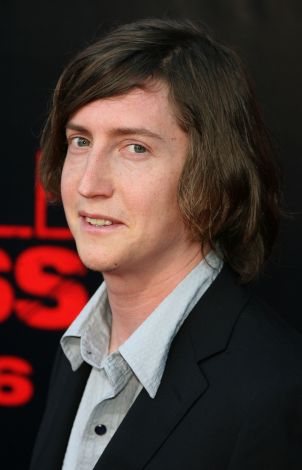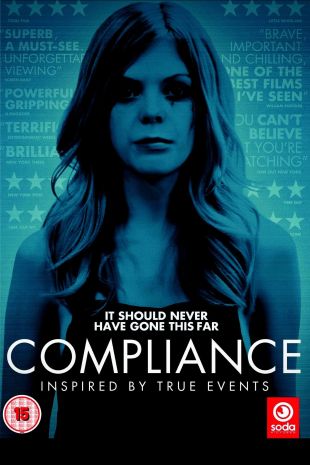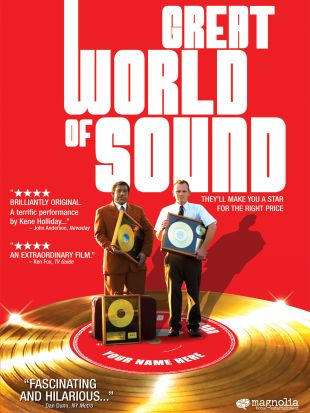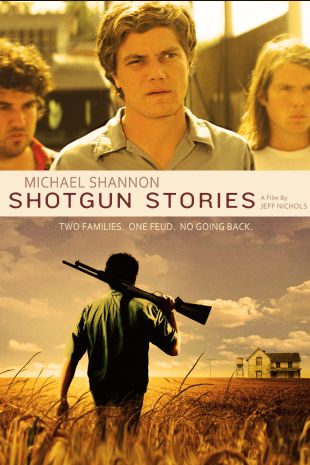Writer/director/producer David Gordon Green arguably qualifies as the most individualistic American filmmaking voice to emerge during the early 21st century. In his early work, Green demonstrated an instinctual feel for Southern Americana, landscapes, and populace, and laudably broke away from traditional narrative structures and character development to such a degree that his first three features (uniformly rooted in the said onscreen elements) are instantly identifiable as his own. A native of Little Rock, AR, Green grew up as the son of a medical school dean father and a Lamaze instructor mother. As a young man, he religiously watched films, yet (unsurprisingly, given the iconoclastic approach to the medium that he ultimately embraced) gravitated far more to nontraditional narratives, such as Walkabout, Killer of Sheep, and the features of Terrence Malick (Days of Heaven) than he did to buttered popcorn Hollywood fare.
As time rolled on, Green began to envision a lifelong career for himself as a filmmaker, and took some of his first formal steps in that direction by enrolling in the film production program at the North Carolina School for the Arts after high school. A student consistently at the top of his class, he turned out a number of acclaimed and breathtakingly original shorts, one of which, Pleasant Grove (1996), evolved into Green's independently financed first feature, George Washington (2000). Scripted by Green and shot during the summer of 1999, George Washington loosely interweaves events from the lives of several African-American children coming of age in rural, impoverished North Carolina over the course of one long, mythical summer. The lead character (who dreams openly of being elected President of the United States, hence the film's title) suffers from an unusual cranial disability that plays into his successful act of heroism -- a courageous attempt to save another little boy from death -- while another tragic incident involving a fatal accident manifests itself in the community. As would become his trademarks, Green cast a plethora of nonprofessional actors, employed heavy improvisation, and resisted any attempts at conventional storytelling. A shattering debut to end all, George Washington took the press by storm when it bowed in 2000, and made Green's name a household word in the independent filmmaking community. Among other accomplishments, it won four distinguished honors (including Best Picture) at the 2000 Independent Spirit Awards, netted the Discovery Award at the 2000 Toronto Film Festival, and won Best First Film for Green at the New York Film Critics Circle Awards. In terms of critical raves, its admirers included A.O. Scott of the New York Times, who called it "a dream of a movie" and compared it to William Faulkner, not exactly small praise for a tyro director on his first time out.
Green waited three years before authoring and directing a follow-up to George Washington. The result, 2003's romantic drama All the Real Girls, cast one of the supporting players from the director's first film, Paul Schneider, as Paul, a twentysomething from a small Southern town who earns his keep repairing cars, and who lives with his mother. Sexually experienced in the extreme, he's slept with nearly everyone in town but finds it difficult to sustain a long, permanent, and meaningful relationship, which makes it doubly difficult when he falls deeply in love with a newcomer, boarding-school student Noel (Zooey Deschanel) and draws the ire of many in his social circle who disapprove, including Noel's brother. Jean Doumanian produced the film; though it fell just shy of the critical acclaim heaped on George Washington, it still earned raves from innumerable top-tiered critics for Green's unusually mature, glistening insights into the complexities of young romantic relationships, the multilayered performances, and the director's refusal to simplify the narrative with Hollywood dramatic conventions.
A follow-up, the crime thriller Undertow, bowed late the following year. Technically flashier than Green's prior films but infused with a Southern gothic quality also evident (albeit to a lesser degree) in George Washington and All the Real Girls, it plunges into a severely dysfunctional Southern family made up entirely of men, and culminates with two brothers relentlessly pursued by a deranged uncle. Its admirers included Roger Ebert (who praised the film's fusion of realism and surrealism) and The Chicago Tribune's Michael Wilmington, who rhapsodized, "Seething with violence, bleeding with lyricism, it's a poem from the junk heap, a cry from the swamp." Still others attacked it as hokey, unpleasant, and/or unconvincing. All told, it fell short of the acclaim generated by its two predecessors, and demonstrated a more conventional Western narrative than Green's prior work even as it spoke to his directorial ability.
In successive years, Green branched out into producing and turned out intriguing efforts such as the 2007 festival hits Great World of Sound and Shotgun Stories, but returned to form as a director that same year, with the critically praised melodrama Snow Angels. With a first-rate Hollywood cast including Griffin Dunne, Kate Beckinsale, and Sam Rockwell, it constitutes an adaptation of Stewart O'Nan's novel of the same name and explores the gritty onslaught of violence and chaos at the heart of a Middle American family. It earned many enthusiastic reviews and ran in the arthouse circuit in the United States, ensuring continued success for Green.
The following year brought Green's first mainstream commercial project, the Judd Apatow-produced crime comedy Pineapple Express (2008). As scripted by Seth Rogen and Evan Goldberg from a story by Apatow, and starring Rogen and James Franco, it told of two stoners who must go on the run after unwittingly getting caught up in a violent drug war. In addition to drawing more critical praise for Green, it shot to the top of the box office as a massive summer hit on domestic and international fronts, making Green, for the first time in his decade-long career, an eight-figure box-office commodity.



